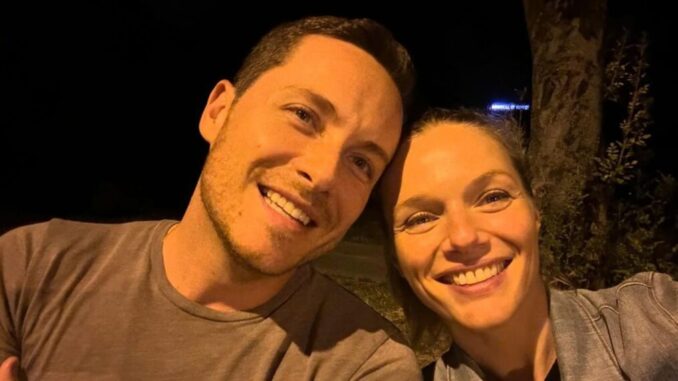
From Detective to Director: Soffer’s Return Behind the Camera on Chicago P.D.
For ten seasons, fans of Chicago P.D. knew Jesse Lee Soffer as Detective Jay Halstead, a man of unwavering moral conviction, intense loyalty, and a gaze that could peel back layers of deception. He was the beat cop of the narrative, the quiet storm, the emotional anchor of the Intelligence Unit. His departure from the series left a void, a lingering question mark over the future of the show. Yet, in a twist as compelling as any P.D. storyline, Soffer has returned, not with a badge and a gun, but with a script and a vision, stepping behind the camera to direct. This evolution, from leading man to orchestrator, is more than just a career pivot; it’s an illustrative testament to the power of intimate knowledge, deep affection, and the unique perspective forged by years spent living within the very world he now sculpts.
Soffer’s tenure as Detective Halstead wasn’t merely a job; it was an immersion. For nearly a decade, he navigated the dark alleys, the blue-lit interrogation rooms, and the moral ambiguities that define Chicago’s gritty streets. He inhabited a character who experienced love, loss, betrayal, and triumph. This profound immersion offered him a rare, almost surgical, understanding of the show’s DNA. He understood the rhythm of its dialogue, the cadence of its action sequences, the subtle tics that defined each character, many of whom he called scene partners for hundreds of episodes. He felt the weight of the city, the urgency of its crimes, and the complex internal lives of its heroes. When he steps onto the set as a director, he doesn’t just see actors; he sees the living embodiments of stories he helped tell. He doesn’t just block a scene; he feels its rhythm, informed by countless hours spent delivering similar lines, reacting to similar beats.
The transition from being directed to directing is profound. As an actor, one’s primary focus is often internal – understanding one’s character, hitting marks, delivering lines with authenticity. As a director, the focus explodes outward, encompassing every frame, every sound cue, every nuance of performance from an entire ensemble. Yet, Soffer’s history as Halstead grants him an unparalleled advantage. He knows the delicate balance required to portray the raw emotion of a suspect or the hardened resolve of a detective because he has lived those moments. He can offer guidance to his former co-stars, not just from a technical standpoint, but from a place of shared experience and deep empathy. Imagine him directing a tense interrogation with Patrick John Flueger’s Ruzek or Marina Squerciati’s Burgess; he understands their characters’ inner landscapes, their established vulnerabilities and strengths, almost as well as they do. This insider perspective allows for a shorthand, a trust that bypasses the usual director-actor dance, fostering a collaborative environment where authenticity can truly flourish.
Moreover, Soffer’s return behind the camera signifies a deeper connection to the very soul of Chicago P.D. It’s not just about guiding an episode; it’s about safeguarding its legacy, ensuring its thematic consistency, and amplifying its unique voice. He is a cartographer of its gritty streets, an architect who knows every support beam and hidden passage of its narrative structure. When he frames a shot of a squad car speeding through the city, or captures the intense gaze of a detective, he is drawing upon a reservoir of personal experience that few outside the core creative team can boast. His choices are informed by a decade of understanding what makes P.D. resonate with its audience – the visceral action, the human drama, and the relentless pursuit of justice in a morally ambiguous world.
From the front lines of justice to the architect of its depiction, Jesse Lee Soffer’s return as a director on Chicago P.D. is a powerful illustration of creative evolution. It speaks to the richness that an actor’s journey can bring to a new role, transforming intimate experience into authoritative vision. He doesn’t just oversee the making of an episode; he imbues it with the very essence he helped create, proving that sometimes, to truly lead the story, one must first have lived within its every beat. The detective has traded his badge for a megaphone, but his keen eye for truth and his profound understanding of the human struggle remain his most potent tools.
